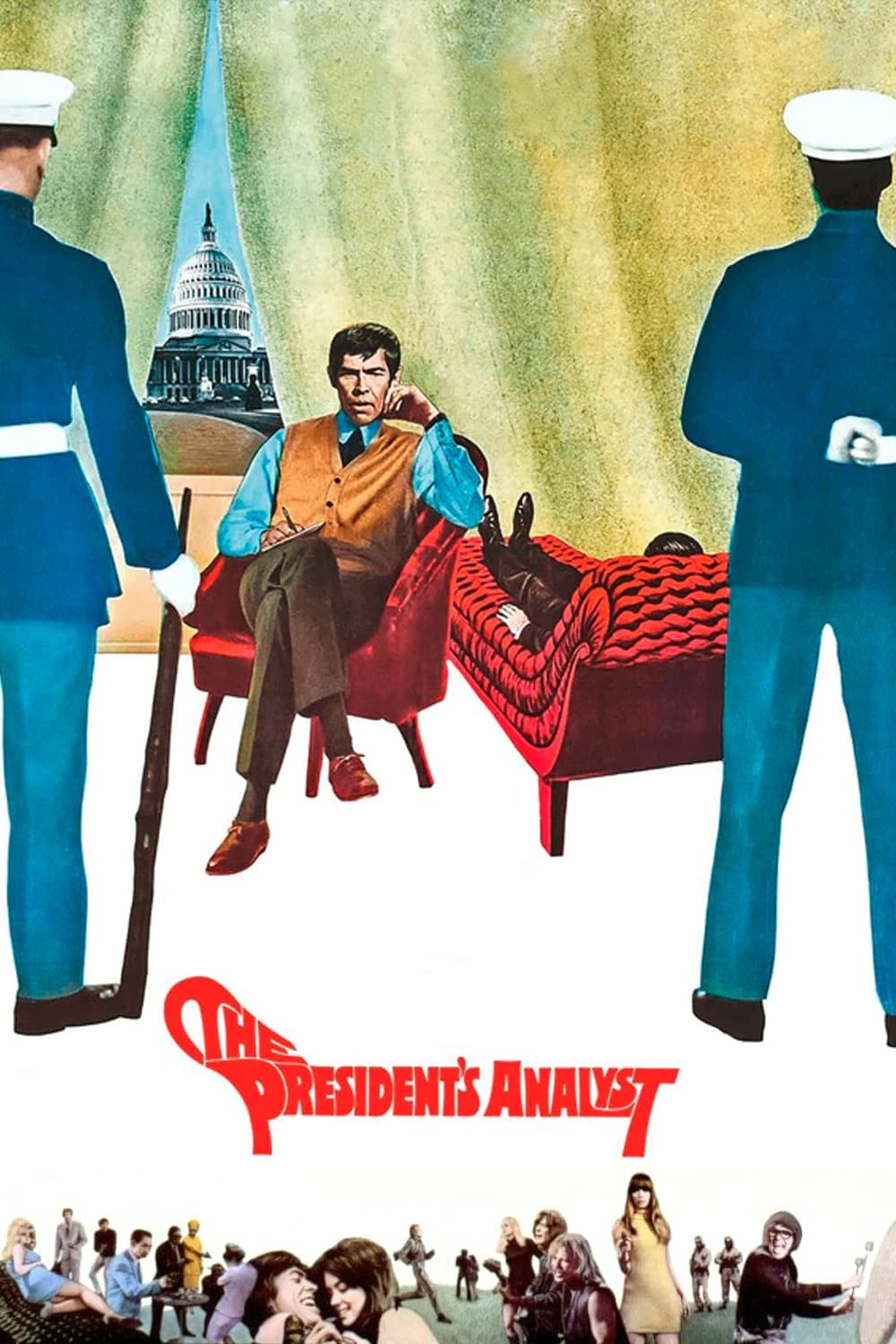
At first, Dr. Sidney Schaefer feels honored and thrilled to be offered the job of the President's Analyst. But then the stress of the job and the paranoid spies that come with a sensitive government position get to him, and he runs away. Now spies from all over the world are after him, either to get him for their own side or to kill him and prevent someone else from getting him.
09 Feb The President’s Analyst (1967)
Surrogates
The gas has cooled on this balloon, and the (political) Earth shifted underneath. But that makes it a bit more enjoyable if you come to this for the structure.
The story device is simple: cold war spy versus spy, only to learn that the (then monopoly) phone company trumps all. But the narrative structure is apart from that. It employs James Coburn, then well known for what we could later call folded acting: where his persona as Coburn is folded into his reactions as the character.
That character is an analyst, who at least for the purposes of the film, has the ability to see below the surface and understand causal dynamics. He first is exposed to the president, standing as the surrogate for one nation‘s psyche (in relation to others). We meet the surrogates for those others as they mostly bicker, except for two opposing spies (both under therapy from our doctor).
It is a brilliant choice, having our own in-story viewer being an analyst. This differs from the usual formula of detective/reporter/lawyer. Among other possibilities, it allows for three sequences internal to the mind. One is a marijuana-laced lovemaking session in a field; another an LSD trip. The third is a similar psychedelic torture method applied by the phone company. Perhaps these worked decades ago, but I think not. You need something less flippant to help us reference internal reflection.
But they did do a good enough job of conflating the internal mind of the first two into the technologically induced visions of the phone company‘s headquarters. And that matters to us. Because the phone company here has little to do with phones. It is instead the sort of pervasive spy that sees us the same way we as viewers are seeing the film. Indeed, the end of the film pulls back and we see an audience of ‘people‘ from the phone company.
These are not people in fact, but robots which in this fabulation of analysis removes them from the scope of the on-screen analyst, so that the noir formula is preserved: we the audience by our viewing directly enter the film and manipulate an unknowing, hapless character.
Of course no one would ever consider this an art film with serious pretension. That makes it more interesting to find these sorts of dynamics — perhaps intuitively designed — in a light mass entertainment.
Posted in 2011
Ted’s Evaluation — 2 of 3: Has some interesting elements.


No Comments